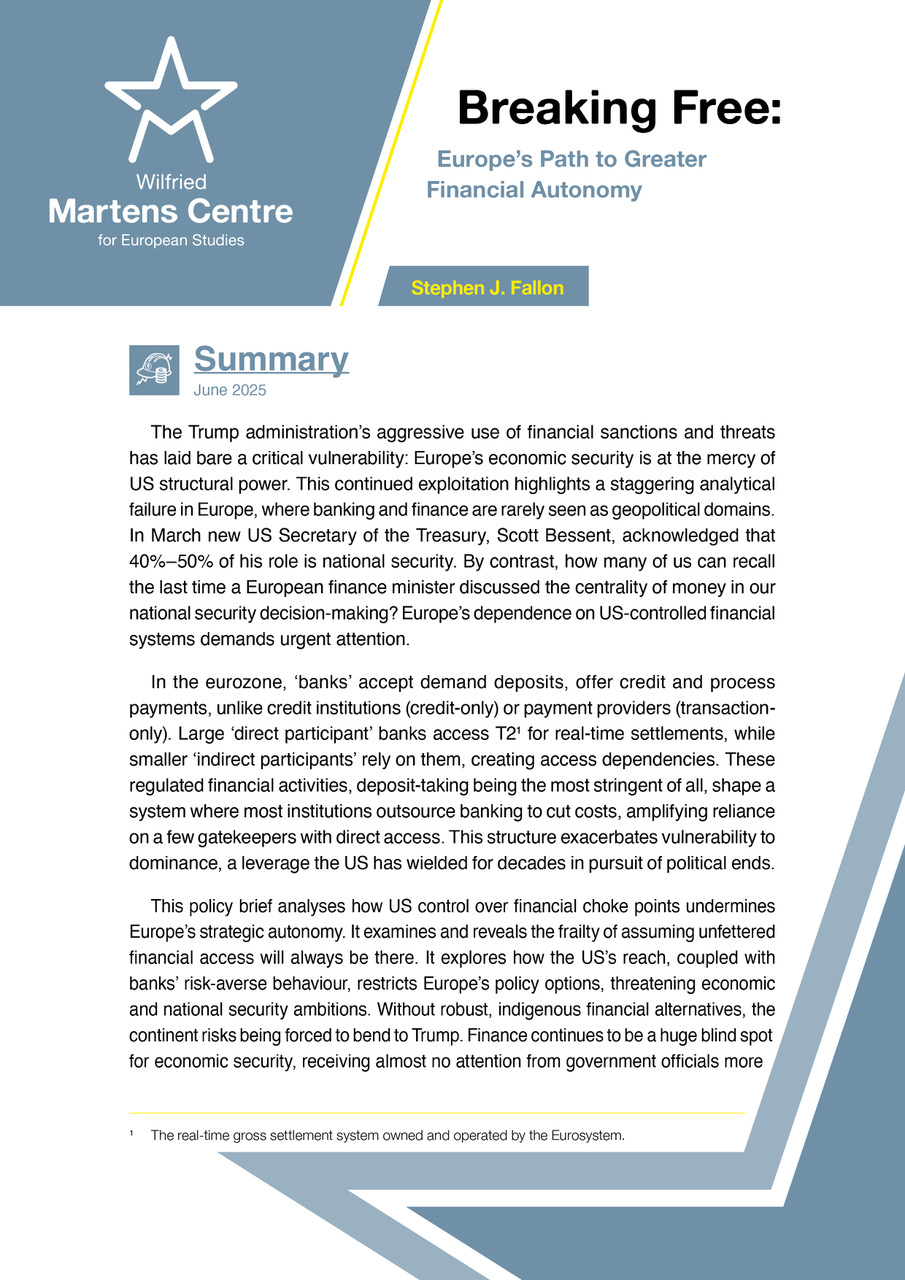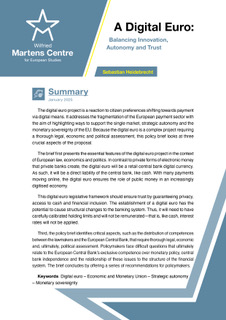The EU is a union of rules, not a union of force
08 November 2014
The European Union is a union of sovereign states, who are sovereign in that they are entirely free to leave the EU. This freedom to leave means that the EU is not a “super state”. There is no coercive force, no EU army, to force Britain or any other country to remain in the EU. Britain enjoys a freedom, within the EU, that colonies did not enjoy within the British or other European Empires.
Britain is thus entirely within its rights in considering the option of leaving the EU, although that does not mean that such a course would be wise.
The EU does not exist on the basis of coercion. It exists on the basis of common rules, or Treaties, applicable to all, interpreted independently by the European Commission and the European Court of Justice, that EU countries have so far freely abided by, even when particular decisions were not to their liking. If countries started systematically ignoring EU decisions, the EU would soon disappear.
One set of particularly important set of EU rules are the ones that apply to budget deficits and debts of EU countries within the euro zone. These rules have been incorporated in EU Treaties and in Treaties between Euro area states. One of the provisions is that if a country has an excessive deficit, it must reduce that deficit by an amount equivalent to 0.5% of GDP each year until it gets its deficit below 3%.
France and Italy, big states that were founder members of the EU, have both produced budgets for 2015 that do not comply with the rules. Previous commitment they gave to get their budget in line have not been kept. Initially the European Commission objected to their 2015 budgets, and both countries have adjusted their budgets a little. But, even after these revisions, the budgets are still in breach of the EU rules.
Some will argue that it is the rules that are at fault, not France and Italy. If inflation is negative, debts increase in value, while prices are falling. Countries are then caught in a debt deflation trap of a kind that was not envisaged when the rules were drawn up. But that is an argument for changing the rules, not an argument for ignoring them, or pretending they have been complied with when they have not been.
Neither France nor Italy have taken the sort of steps that Ireland, Greece, Spain and Portugal have taken to bring their fiscal situation into line. Nor have they implemented structural reforms that would release growth potential , as Spain and Greece have done. Thanks to reforms it undertook under pressure, Greece is set to have one of the fastest growth rates in the EU in 2015 and 2016, along with Ireland. French and Italian laws have rigid protections for insiders in the job market, but leave a choice of temporary low paid contracts, or unemployment, for the rest of their people. Their administrative, legal, and tax systems need urgent reform.
Obviously, the European Commission will try to be politically realistic with both countries, but a single currency cannot work for several countries unless there is either a single government, which we do not and will not have in the euro zone, or rules that are transparently and uniformly applied to all countries, big and small.
Some would argue that the rules should be changed to take account of the problem of the debt trap caused by deflation, which is Italy’s problem (but not that of France). There is a good case for this. But changing the rules would require EU Treaty change, and nobody wants to change the Treaties, because a Treaty change would have to be unanimously agreed among all 28 EU states.
Other states fear that proposing any Treaty change now would be an opportunity for Britain to use the lever of blocking a Treaty change unless British demands for
– a restriction of free movement of people within the EU,
– vetoes for a minority of national parliaments on EU legislation and
– the scrapping the goal of “ever closer union” within the EU,
are conceded.
This is a form of blackmail, but it has happened before in EU affairs. But British domestic politics should not be allowed to prevent Treaty reform for the euro zone, of which Britain is not even a member!
If the EU is unable to change its Treaties, because of blockages like this, the EU will eventually die. A state would cease to work if it cannot change its constitution. It is the same with the EU. Necessary EU Treaty change cannot be dodged indefinitely.
In a recent commentary, Daniel Gros of the Centre for European Policy Studies has criticised the European Commission of Jean Claude Juncker for failing so far to either
a. Insist that France and Italy stick by the existing fiscal rules or, if not
b. Call for a revision of the rules to take account of the exceptional deflationary conditions that exist
He is right .
ENJOYING THIS CONTENT?






















